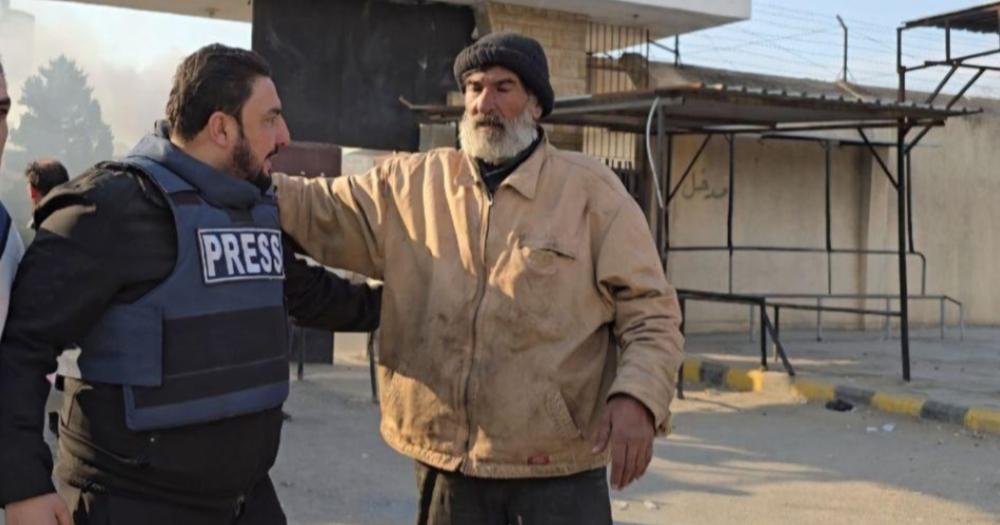Lebanon man missing for almost 40 years supposedly freed from Syria prison after Assad's fall
People have disappeared in Syria's prison network with families often kept in the dark about their fate.

A Lebanese man, Moammar Ali, who went missing since he was the age of 18 has been reportedly freed from a prison in Syria following the flight of the country's president, Bashar al-Assad to Russia.
Family has not heard from him since he was taken by Syrian soldiers in 1986
According to the man's brother, Ali Hassan al-Ali, Moammar was arrested in 1986 by Syrian soldiers at a checkpoint in north Lebanon, The Guardian reported.
Moammar was a university student at that time.
His family did not hear from him since then and spent the next 30 years trying to find out about his whereabouts in Syria in vain.
The last information Ali Hassan received about his brother was that he was held at a military security branch in Damascus, Syria's capital city.
This was prior to the outbreak of Syria's civil war in 2011.
Assad's prison network is widely feared across both Lebanon and Syria due to the widespread use of torture and executions and is seen as a symbol of his brutality, according to the Associated Press and Financial Times.
Lina Khatib, an Associate Fellow in the Middle East and North Africa programme at the London think tank Chatham House, said:
"Anxiety about being thrown in one of Assad’s notorious prisons created wide mistrust among Syrians. Assad nurtured this culture of fear to maintain control and crush political opposition."
Apart from Syrian citizens, Lebanese citizens have also vanished in the prisons, most notably when Syria intervened in Lebanon's civil war and forces remained in the country, from 1976 to 2005.
Received news of his supposed missing brother on Dec. 5, 2024
Subsequently on Dec. 5, 2024, Ali Hassan said he began receiving the same image multiple times from friends and relatives showing an old man standing outside a prison in the Syrian city of Hama.
Speaking to Reuters, Ali Hassan said, "Your heart tells you this is your brother."
He added:
"They said he resembled me. I told them, ‘this is my brother!’ The feeling … it’s indescribable. Imagine that I haven’t seen him for 39 years and then all of a sudden his picture is sent to you, how would you feel?"
Ali Hassan said his family has yet to make contact with the man in the image, however.
In addition, a Syrian journalist in touch with Ali Hassan said that the man in the images has lost his memory after his long captivity and is unable to properly identify himself.
Muammar Al-Ali instantly knew that the bearded man filmed after being freed by Syrian rebels from a prison in Hama this week was his brother, Ali, who had been missing for nearly 40 years.
"Your heart tells you this is your brother.”
🧵 https://t.co/VYkdGAAELP pic.twitter.com/i48jAAMnrd
— Timour Azhari (@timourazhari) December 7, 2024
One of thousands freed from government prisons amidst jubilant scenes
The Guardian further reported that the man in the images was one of thousands freed from government-run prisons in Hama when rebels seized control of the city on Dec. 5.
Scenes of people being released from prison by the rebels have also been seen in the cities of Homs, Aleppo and Damascus, following the rebels' takeover of the cities.
These moments have been marked with exuberance, relief and joy among the Syrian population, given the prison network's infamous reputation.
One prison saw the deaths of over 30,000 detainees from 2011 to 2018
Of all the prisons, the most notorious is the Saydnaya prison, north of Damascus, which has been described as a "human slaughterhouse" and "death camp".
According to the BBC, over 30,000 detainees are estimated to have died in this prison between 2011 and 2018 as a result of torture, lack of medical care or starvation.
One of the detainees who survived shared that he and his cousin were forced to torture each other, otherwise they would both be executed.
Thousands of detainees were also subjected to sexual assault and mass executions.
In addition, family members of the detainees were often left in the dark about their fates for years.
The detainees include men, women and children.
Efforts to free the prisoners from Saydnaya are still ongoing, with the Syrian civil defence group known as the White Helmets investigating reports that there are people locked away in hidden underground cells, the BBC further reported.
The Damascus Countryside Governorate (one of the province-level governments in Syria) has since put out an appeal on social media to former prison staff under Assad's regime to provide the codes to electronic underground doors.
Authorities added that some of the prisoners are "almost choking to death" from the lack of ventilation.
An update by the White Helmets on Dec. 9 said they had deployed five specialised emergency teams to the prison to search for survivors from the underground cells and rescue them.
The White Helmets has deployed 5 specialized emergency teams to Sednaya Prison to investigate hidden underground cells, reportedly holding detainees according to survivors. The teams consist of search and rescue units, wall-breaching specialists, iron door-opening crews, trained…
— The White Helmets (@SyriaCivilDef) December 8, 2024
Related stories:
Top photo via @AhmedAlrihawi/X
MORE STORIES




















